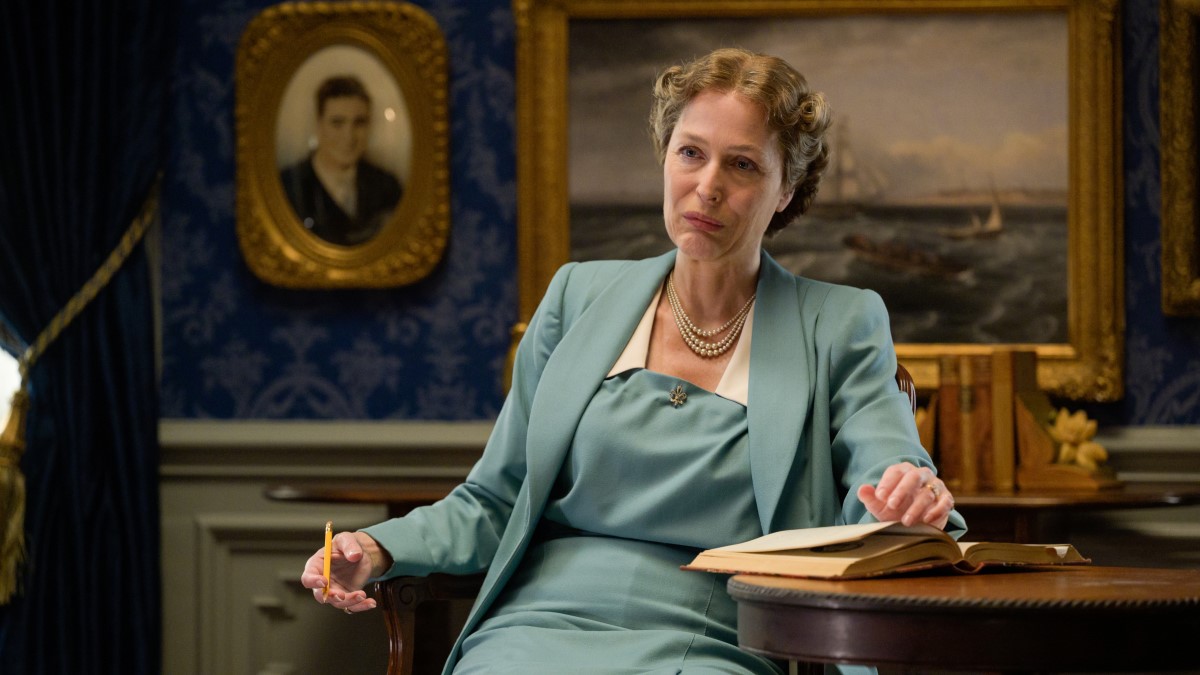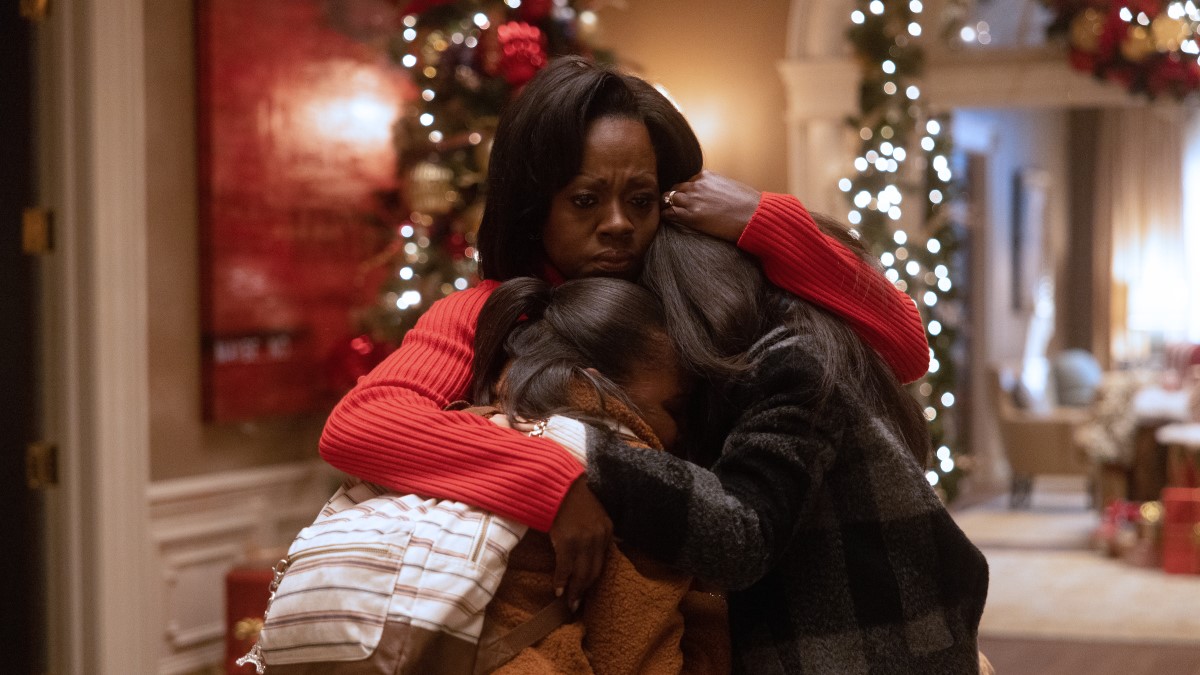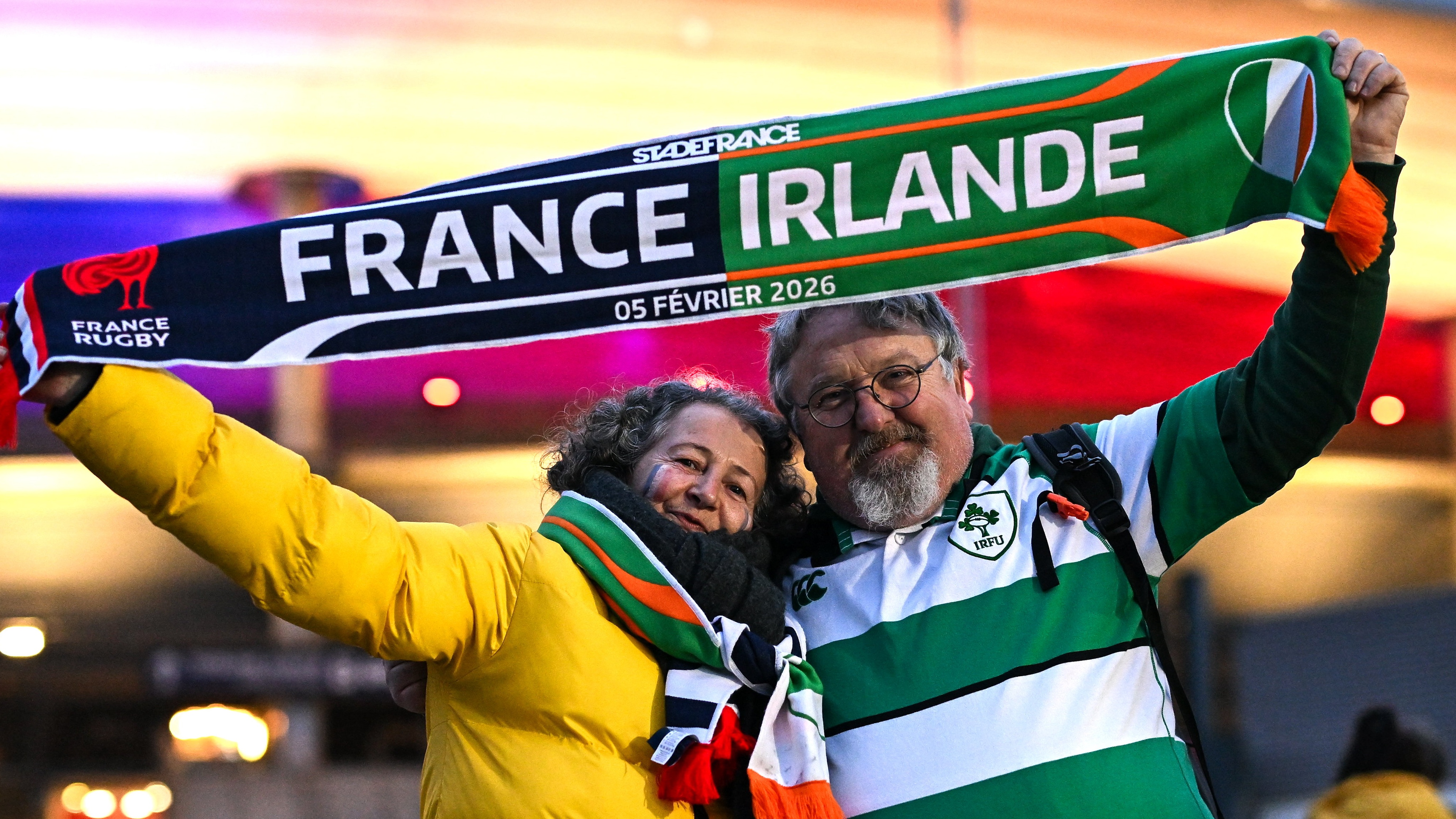What to Watch Verdict
The First Lady confronts seemingly hopeless situations with a mix of grace and unsubtle framing.
Pros
- +
Seeing Marian Anderson's story
- +
Shifting each story forward
- +
Confronting challenging scenarios
- +
The use of archive footage
Cons
- -
The writing doesn't match the strength of the performances
- -
After a heavy week this is a reminder of the cyclical nature of the news (and history)
NOTE: This post contains spoilers for The First Lady season 1, episode 7, "Nadir.” Read our previous The First Lady season 1 episode 6 right here.
Sometimes scripted television reflects the news through sheer coincidence, such as the FBI season 4 finale CBS pulled from the schedule in light of the mass shooting at Robb Elementary School in Uvalde, Texas, on May 24. As people mourn after another mass shooting (there have been more than 200 mass shootings in 2022 already), an episode of The First Lady portraying the Sandy Hook massacre cannot escape its grim relevance to the news.
Sandy Hook isn’t the only incident of gun violence covered in the Michelle Obama (Viola Davis) portion of "Nadir." A week after the second Obama inauguration in 2013, 15-year-old Hadiya Pendleton (Leeann Ross) was gunned down in the same South Side Chicago neighborhood where the Obamas lived. Hadiya’s connection to this administration goes beyond the Chicago locale as she performed with her high school’s majorette team as part of the inaugural celebration. Juxtaposing Hadiya and her excited classmates interacting with Michelle and her daughters with the news of her murder reflects what the Washington Post referred to as Hadiya becoming "a national symbol of for the innocence lost to senseless shooting."
After the funeral, Michelle promises Hadiya’s mother, "your daughter will not be forgotten." In January this year, it was announced that the Winter Garden at the Obama Presidential Center would be named after Pendleton. This promise has been remembered, but the list of gun violence victims is seemingly endless.
"Is it ever going to change?" Michelle asks her husband after attending Hadiya's funeral. Barack (O-T Fagbenle) mentions a bill they are trying to pass, but anyone watching knows the answer to Michelle's question isn't a positive one — and Barack also says, "I don't know."
Scenes earlier in the episode depict the reaction to Sandy Hook, highlighting how little has changed over the last decade and it is hard to shake the senseless loss with the current news so fresh in our minds. "We've endured too many of these tragedies in the past few years," says Barack at the press conference, which the series takes directly from the president's address on that December day in 2012. Fagbenle captures the emotion and once again it's hard to hear these words and not think about the address Joe Biden (who was vice president when Sandy Hook occurred) gave earlier this week.
Christmas lights frame the shot of Michelle and Barack hugging Malia (Lexi Underwood) and Sasha (Saniyya Sidney), which is The First Lady hammering home the horror that has unfolded; the series continues to lack subtly.
The latest updates, reviews and unmissable series to watch and more!
The festive season is a superficial link between the 2010s and mid-70s. The Fords are celebrating their second Christmas Eve at the White House and the family get-together is interrupted by twirling mustache villain duo, Donald Rumsfeld (Derek Cecil) and Dick Cheney (Rhys Wakefield). Taking a page out of Ebeneezer Scrooge’s book (before any ghosts visit him), the perpetually worried duo are here to remind Betty (Michelle Pfeiffer) to be on her best behavior.
The campaign for the 1976 election is heating up and they have it on good authority that Ronald Reagan will announce his candidacy in the new year. Their concern is Reagan has shored up the evangelical vote and Betty’s liberal opinions will lead to them losing the White House — even though Gerald is the incumbent.
A Saturday Night Live sketch concerns Donald and Dick because Chevy Chase portrays Gerry (Aaron Eckhart) as a bumbling idiot. Both Betty and Gerry laugh at this depiction, with Gerry seeming rather pleased to be getting the SNL treatment. These complaints about Betty’s activism are interrupted by a phone call from Nancy (Judy Greer), whose husband is embroiled in legal issues. Nancy’s husband died by suicide (in reality, this happened four months later), leading to Nancy handing in her resignation. Betty objects, but Nancy is aware of the optics.
Gerry secures the Republican nomination for the 1976 election, but it shouldn’t have been a tight race. Betty’s transparency has been a secret weapon; however, her drinking (and pill-popping) threatens her popular image. The episode ends with a slurring Betty talking on the national stage and her family watching at home, looking on helplessly.

"Nadir" means the "worst moment, or the moment of least hope and least achievement" and the events that unfold across the three different First Lady timelines in episode 7 depict various political and personal lows within each marriage and administration. We have seen both Barack and Gerry weigh up how much a particular policy or legislation will impact the potential longevity of an administration. Now it's Franklin Roosevelt's (Kiefer Sutherland) turn to respond to his wife’s activism and its impact.
If the link between Betty and Michelle this week is as tenuous as Christmas decorations, then the thread between 2013 and 1939 offers more. Before the inauguration, Marian Robinson (Regina Taylor) shows her granddaughters a video of Marian Anderson performing at the Lincoln Memorial in front of 75,000 people in 1939. This ties directly to Eleanor’s (Gillian Anderson) storyline and the First Lady's Daughters of the American Revolution (DAR) membership. Eleanor resigned after discovering they wouldn’t allow the Black singer to perform at Constitution Hall in Washington, D.C.
Eleanor’s vocal opposition to segregation begins at the all-female press conference she is still hosting. Here she is told about the DAR blocking Anderson and later discovers they'll only allow white performers. Rather than brush it under the carpet, she confronts racism head-on. She helps organize the Lincoln Memorial concert and takes a ride in a plane with one of the Tuskegee Airman.
All of this attention reflects her husband’s inaction and he explains to his daughter he cannot end segregation because he won’t get re-elected and "everything that we’ve done so far will be for naught." Anna (Cailee Spaeny) is similar to her mother and calls him out for this weak response. Segregation would continue for 35 years , which shows how slowly change occurs when political chess gets in the way — no matter the era.
Watch The First Lady on Showtime in the US and in the UK you can now stream it on Paramount Plus.
Emma Fraser spends most of her time writing about TV, fashion, and costume design; Dana Scully is the reason she loves a pantsuit. Words can also be found at Vulture, Elle, Primetimer, Collider, Little White Lies, Observer, and Girls on Tops. Emma has a Master’s in Film and Television, started a (defunct) blog that mainly focused on Mad Men in 2010, and has been getting paid to write about TV since 2015. It goes back way further as she got her big start making observations in her diary about My So-Called Life’s Angela Chase (and her style) at 14.


